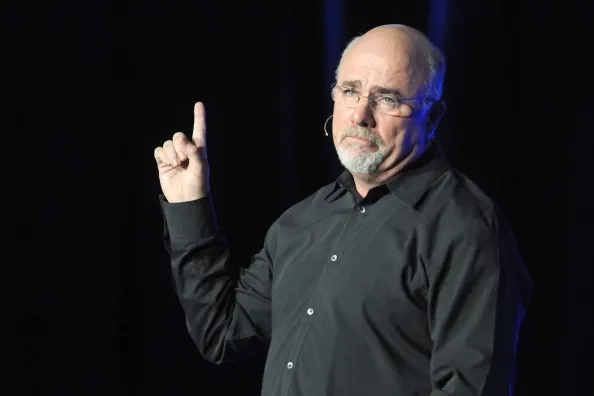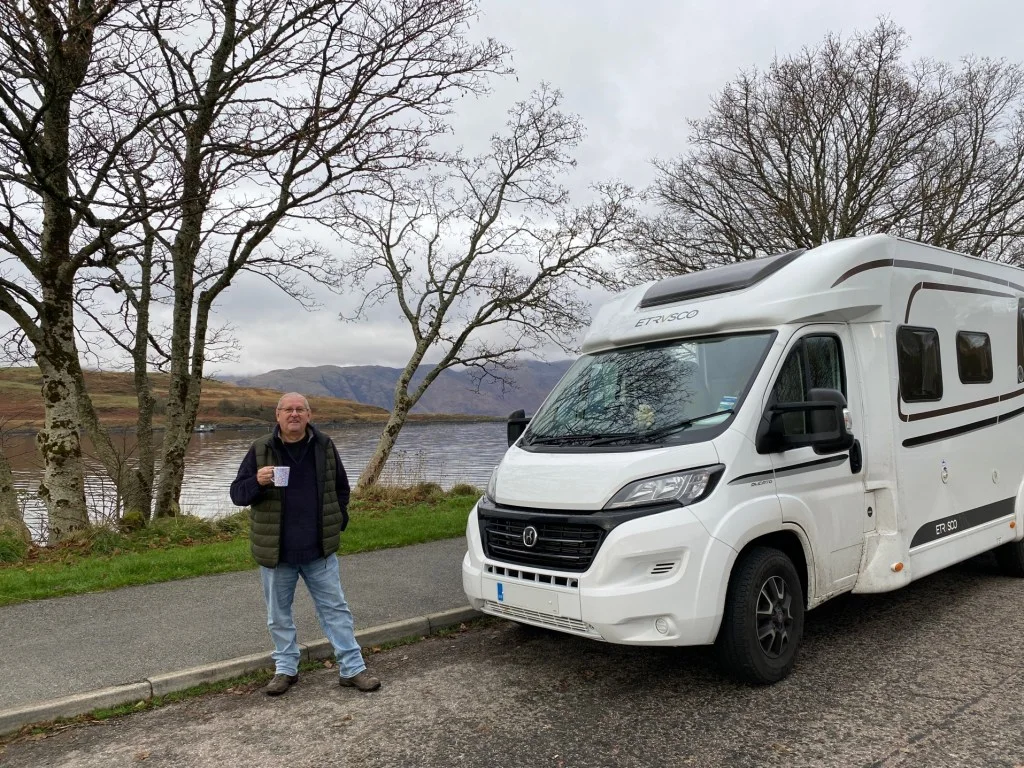While it seems like everyone is jumping into RVing, there’s no shortage of people calling it quits. Trading in your house on wheels for a traditional sticks-and-bricks home isn’t an easy decision or process. However, it’s possible to make a smooth transition.
If you’re considering throwing in the towel, we have a few things you should keep in mind. Let’s get started!
Is RVing Worth It?
RVing can be exciting and adventurous. Those traveling the country full-time or part-time in their RV get to see and experience places most only see in magazines or on social media.
However, the freedom of constantly moving from one location to the next doesn’t come without a cost.
Campsites fees, rising fuel costs, and maintenance are significant expenses for those calling the road home. It’s an unpredictable lifestyle that can be stressful and may require a large emergency fund to pay for repairs and unexpected expenses. If you’re not financially stable before hitting the road, RVing can be challenging.

Some costs of RVing aren’t just financial. RVing across the country typically means leaving friends and family behind. Many RVers don’t stay in one place for too long, making it even more challenging to grow relationships. Interactions with others become likes and DMs through social media and fewer face-to-face interactions.
Deciding whether RVing is worth it is a personal decision that only you can make. It’s important to know that RVing may be worth it for a season of your life but not at a different time. Consider your circumstances and how they can significantly impact your quality of life while traveling. While some can spend decades adventuring in a camper, others might not last quite as long.
However, RVing can cause you and others traveling with you to grow closer together and as individuals. You can’t put a price tag on that growth, and it’s worth every penny.
2O22 POLL: Are Gas Prices Changing Your Travel Plans?
Why Do People Quit RVing?
While people quit RVing for various reasons, one of the main reasons is their life circumstances. Some things are simply out of our control. While RVing may be suitable for a specific season of life, things can quickly change.
Changes in health, employment, or relationships can often drive RVers to quit. Circumstances back home with loved ones might also change, which can cause travelers to feel the need to be available full-time.
There has been tremendous growth in people RVing in recent years. Since more people are working and learning remotely, the lifestyle is possible for many more people. However, some don’t spend the time researching or preparing to hit the road and overestimate their ability to adjust RVing.
The road has a way of humbling those who bite off more than they can chew.
Keep in Mind: This is why we quit full-time RVing.
How to Quit RVing (Without the Pain)
There are a few things you’ll want to do to quit RVing without the pain. Let’s look at how you can adjust as smoothly as possible!
Have An Exit Plan
The past couple of years has taught us that things can change quickly. You must have multiple exit plans. You’ll need to be flexible to change plans based on your current circumstances.
If you’ve been living in your RV full-time, you’ll need a way to transition your belongings from the RV to your new home. You’ll also need to make sure you have a place to store your RV, now that it’s not moving from one campsite to the next.
Planning is key to creating an exit plan that allows you to make a smooth transition. Because there are typically many pieces to the puzzle of an exit plan, this isn’t something you can create overnight. Some RVers spend months planning their transition out of RVing.
Ease Your Way Out
Just as there was an adjustment period for jumping into the RV lifestyle, it will take some time to get out of it. If you need to find employment or buy a house where you’re settling, that will take time, too. Many RVers will opt to find an RV park that allows extended stays or even moochdock with friends and family during this time.
You want to give yourself time to make the adjustment and transition. This allows you to process each decision and avoid making mistakes. It also gives you time to reflect on your traveling adventures and appreciate this season of life.
Have a Financial Plan
If you try to make the transition without a solid financial plan, you’re setting yourself up for failure. Many full-time RVers sell their homes to live out their dreams of traveling, but this means you no longer have a place of your own when the adventures cease.
You’ll need a stack of cash or a sufficient bank account to help with expenses. If you’re buying a house, you’ll need money for closing costs, a downpayment, and all the other costs of purchasing a home. If you’re renting, you’ll need money for a deposit, fees for pets or background checks, and funds to buy furniture and other essentials.
One mistake that many RVers make is thinking their RV will sell faster than it does. This can be problematic if you plan to use profits from selling your RV to help with the transition. Depending on the condition and location of your RV, it can take weeks or even months to sell your RV.
The Expert Opinion: Here’s what Dave Ramsey thinks about RV living.

Be Prepared for a Sudden Change
Just as there was a sudden change when you moved into an RV, there will be a change when you transition out of it. It would be best to familiarize yourself with the area where you’re settling as soon as possible. Gather important contact information for utilities and emergency services. It’s also a good idea to scout nearby hospitals and emergency rooms.
Be mindful of the shift you’ll experience in your lifestyle. You’ll no longer have to worry about dumping or filling up tanks or leveling your house, and hopefully, your home won’t sway with heavy winds. While many campsites often provide seemingly unlimited water and electricity, you’ll want to manage those, or you’ll be in for a surprise when your first bills arrive.
How Long Can You Live in An RV?
Some people live in their RVs for years without quitting. They find a way to make the necessary adjustments to embrace the lifestyle fully. Some people enjoy living in a few hundred square feet more than a typical residential house.
Living in an RV doesn’t mean you have to be constantly traveling. Some locations allow landowners to live in their RV year-round. However, this isn’t always the case as some places have regulations regarding what constitutes a dwelling and may require water and waste infrastructures to be in place. This can be an excellent option for those who want to stay long-term in their RV or have a spot of their own to park for a season.

Is It Possible to Quit RVing Without the Pain?
It can be an awkward transition out of RVing, but minimizing the pain is possible. The key to making the transition as smooth as possible is to have a solid plan, think through the possibilities, and be flexible when making adjustments.
In most circumstances, it can take two or three months to quit RVing. You don’t want to rush any steps or make a costly mistake during the process. So take your time and reflect on your travels and all the incredible adventures and relationships you had while RVing.
Are you considering making the transition out of RVing?
Discover the Best Free Camping Across the USA
To be honest with you, we hate paying for camping. There are so many free campsites in America (with complete privacy).
You should give it a try!
As a matter of fact, these free campsites are yours. Every time you pay federal taxes, you’re contributing to these lands.
Become a FREE CAMPING INSIDER and join the 100,000 campers who love to score the best site!
We’ll send you the 50 Best Free Campsites in the USA (one per state). Access the list by submitting your email below:
I miss your posts from when you guys were full-time — you found some amazing places and always had good information.
My S.O. and I decided when we began RVing that we needed a plan B, a parachute of some sort, because Life Happens. We had planned to full-time, realized after about 4 months it was not for us, but still had a sticks and bricks to go back to. We still travel and camp host, but it’s not for more than 4 or 5 months at a shot. I worry about the people who burn all their bridges, jump into RVing fulltime, and then reality turns nasty.
I sort of live in an RV resort in Washington state and been RVing since 1999 and this is what I observe. After R Ving for several yrs they tend to buy into a park model resort and continue to rv back from their winter destination. As time goes buy they get a 2nd park model ditch the RV and drive a car for several seasons . Then they get a car for both places and fly. I’ve seen many get a place in Europe and one in the USA and or southamerica.
Listen to Drivin’ and Vibin they know what they’re talking about. After all, they only RV’ed for a short time before calling it quits.
Personally, I think it’s stupid to quit your job thinking you can make a living off YouTube, and blogging. That’s like winning the lottery. Only a select number of people make enough to live off social media. You have look like models, have an A+ personally, and a subject matter that’s not going to grow old or repetitious over time. And like so many in the past that have tried to do this. They covered the whole country in a short few years. Because they constantly had to keep moving to making interesting content.
It’s really best for young people to have more patience in they’re life, and stop thinking they can have they’re cake and eat it too. On top of that you have to be really good at video editing and spent hours a day filming and editing your content which takes away from the free time you get to actually enjoy the lifestyle.